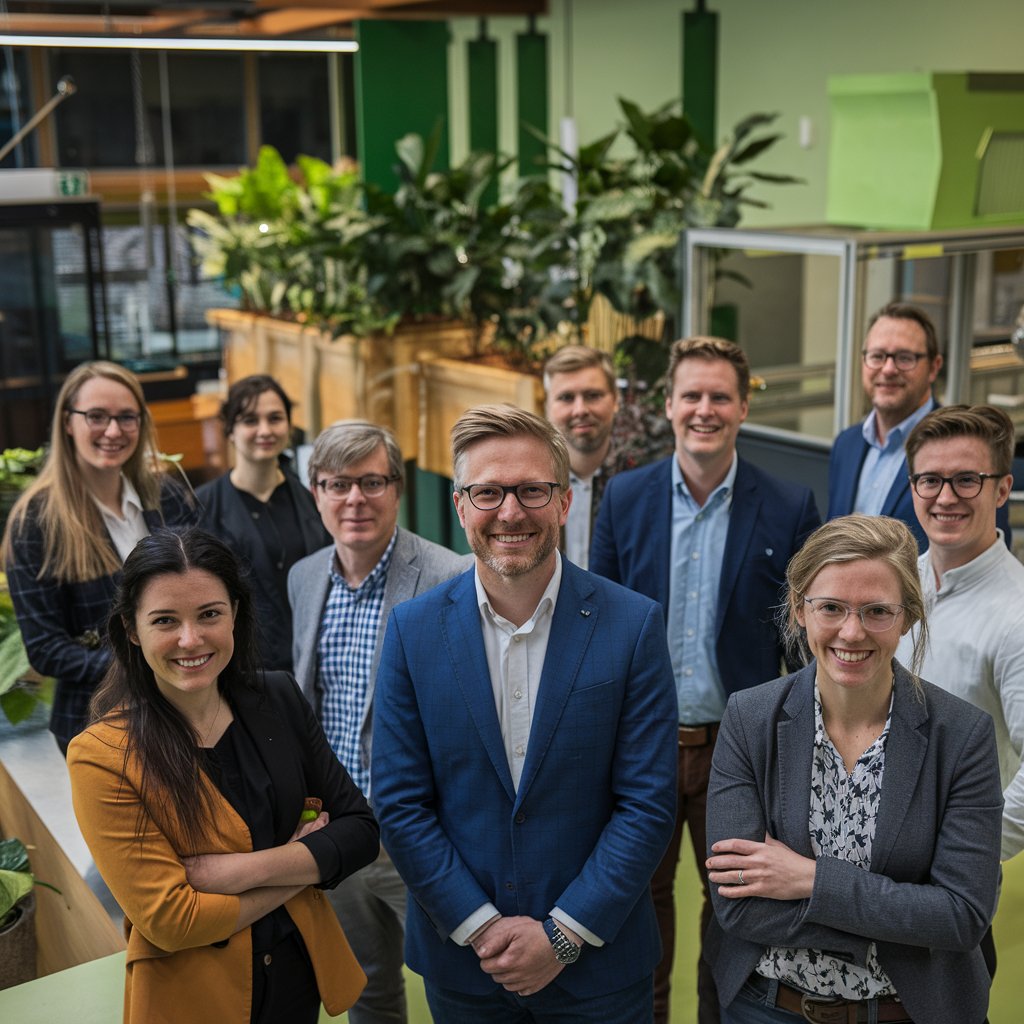Want to know more about this article?
Retaining talent: How to engage and inspire employees in a tight labour market
The green chemical industry in the northern Netherlands is on the eve of major changes. While the sector is developing into the engine of the sustainable transition, a lack of sufficient and suitable personnel threatens to inhibit growth. How do we ensure that sufficient talent is available to future-proof this important industry? To answer this question, we commissioned a comprehensive gap analysis last year. In this blog, we discuss why lifelong learning is crucial, share inspiring examples, and give practical tips for retaining talent within your organization.
In the chemical sector, finding qualified staff has long been a challenge, but retaining employees often proves even more difficult. In a labour market where competition for talent is fierce, companies need to do more than just recruit. It’s about creating a work environment and policies that make employees want to stay and continue developing themselves.
Discussions and analysis within the sector show that the “employee journey” – the total experience of an employee during their time at the company – plays a crucial role. From the first day on the job to the moment of departure or retirement: every touchpoint influences the degree of engagement and motivation.

The challenges: what’s happening in the sector?
- High turnover among younger employees
A common concern in the chemical sector is that younger employees change jobs more quickly than previous generations. This can have various causes, such as different career expectations or the desire to gain new experiences faster. Whatever the reason, it means companies must invest more frequently in recruitment and onboarding, which is both costly and time-consuming. - Loss of critical knowledge due to an ageing workforce
A significant portion of the current workforce in the chemical sector is over 55. As this group retires, a large amount of experience and technical expertise risks being lost. This knowledge has often been built up over decades and is sometimes barely documented in manuals or systems. Without proper transfer, this can lead to reduced productivity and quality. - Strain on the internal organisation
The departure of employees or the loss of knowledge directly impacts teams. Remaining staff must take on additional tasks, increasing workload and stress. This can, in turn, lead to further departures, creating a vicious cycle.
In a competitive labour market, success is not won through salary alone or attractive employment benefits
Solutions currently applied in the sector
- Onboarding and guidance
A structured onboarding process helps new employees feel at home more quickly and become productive sooner. Interviews conducted for the gap analysis revealed that some companies use onboarding strategically to engage employees from day one in the company’s objectives.
A typical onboarding programme often includes:
- An introduction to the organisation’s culture and core values.
- Explanations of work processes, safety rules, and quality systems.
- A clear overview of development and career progression opportunities.
- Personal guidance from an experienced colleague or mentor.
The aim is not only to provide technical orientation but also to help employees understand they are part of a larger whole, where their contribution matters.
- Knowledge retention through mentorship
To prevent valuable expertise from being lost, more and more companies are engaging retired employees as mentors. These mentors guide younger colleagues and transfer their technical know-how and practical experience directly in the workplace.
Benefits of this approach include:
- New employees learn faster and more effectively through hands-on guidance.
- Important company-specific knowledge is preserved.
- Former employees remain involved with the organisation, strengthening the company culture.
Mentorship can take different forms: a structured approach with fixed mentor relationships and scheduled handovers, or a more flexible model where experienced staff are available on demand.
- Investing in the employee journey
The employee journey covers every stage of an employee’s career within a company: from first contact and application, to development, promotion, and departure. Companies that invest in this often focus on three pillars:
- Career development: offering opportunities for internal growth, further training, and specialisation. This increases both motivation and employee loyalty.
- Job satisfaction: fostering enjoyment at work, team spirit, and a healthy work-life balance.
- Engagement: actively involving employees in processes, innovations, and improvements within the company.
By improving these aspects systematically, employees feel valued and are more likely to stay.
Why this is strategically important
Engaging and retaining employees is more than an HR tool; it is a strategic necessity. In a tight labour market, retaining existing staff can be the difference between stagnation and growth. Every employee loss means not just losing manpower, but also accumulated knowledge, client relationships, and team cohesion.
Companies that act early have an advantage: they build a stable core of experienced staff, can respond more effectively to market changes, and face lower costs for recruitment and onboarding.
Conclusion: sustainable relationships as a success factor
In the green chemical sector, retaining talent is just as important as attracting it. The combination of strong onboarding, effective knowledge retention through mentorship, and a well-designed employee journey creates a solid foundation for lasting employee relationships.
Evidence from the sector shows that strategic onboarding directly contributes to employee engagement, while using mentors safeguards knowledge transfer. By also investing in career development and job satisfaction, you build an organisation where employees not only want to stay but also actively contribute to innovation and growth.
In a competitive labour market, success is not won through salary alone or attractive employment benefits. It’s about the complete package – the total experience an employee has throughout their career in your company. By investing in that, you create a strong, resilient team ready for the future of green chemistry.